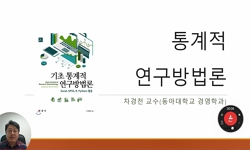In the revised curriculum of 2015, information education transitioned to a problem-solving-centered education based on computational thinking. The revised curriculum of 2022 further expanded programming education in the fields of artificial intelligen...
http://chineseinput.net/에서 pinyin(병음)방식으로 중국어를 변환할 수 있습니다.
변환된 중국어를 복사하여 사용하시면 됩니다.
- 中文 을 입력하시려면 zhongwen을 입력하시고 space를누르시면됩니다.
- 北京 을 입력하시려면 beijing을 입력하시고 space를 누르시면 됩니다.

초·중등 프로그래밍 교육에서 디버깅 활동의 조망을 위한 컨조인트 기반 교수법 선호도 분석 = Analysis of Conjoint-Based Teaching Method Preferences for Perspective of Debugging Activities in Elementary and Secondary Programming Education
한글로보기https://www.riss.kr/link?id=A108997595
- 저자
- 발행기관
- 학술지명
- 권호사항
-
발행연도
2024
-
작성언어
Korean
- 주제어
-
등재정보
KCI등재
-
자료형태
학술저널
- 발행기관 URL
-
수록면
476-486(11쪽)
- DOI식별코드
- 제공처
-
0
상세조회 -
0
다운로드
부가정보
다국어 초록 (Multilingual Abstract)
In the revised curriculum of 2015, information education transitioned to a problem-solving-centered education based on computational thinking. The revised curriculum of 2022 further expanded programming education in the fields of artificial intelligence and software education. Currently, programming education focuses on program writing through project-based learning and problem-solving education, thereby relatively overlooking the importance of reading programs and debugging skills. This oversight is attributed to existing research generally considering debugging activities as personal and specific tasks aimed at finding program errors. This paper reinterprets the concept of debugging, beyond merely fixing errors, to looking out and analyzing errors at a systematic and abstract level using chaos engineering and levels of processing theory. After applying this reinterpretation to conjoint analysis, it surveyed the teaching methods preferred by prospective information teachers. Additionally, based on the issues revealed in teaching methods, it suggested improvements for programming teaching methods. This paper argues that programming education should move beyond simple coding skills to cultivate problem-solving and error analysis capabilities, providing foundational data necessary for the development of teaching methods to achieve this goal.
국문 초록 (Abstract)
2015년 개정된 교육과정에서는 정보교육이 컴퓨팅 사고력을 기반으로 한 문제해결력 중심의 교육으로 변화되었다. 2022년 개정된 교육과정에서도 인공지능과 소프트웨어 교육 분야에서 프로...
2015년 개정된 교육과정에서는 정보교육이 컴퓨팅 사고력을 기반으로 한 문제해결력 중심의 교육으로 변화되었다. 2022년 개정된 교육과정에서도 인공지능과 소프트웨어 교육 분야에서 프로그래밍 교육이 더욱 확대되었다. 현재 프로그래밍 교육은 프로젝트 기반 학습과 문제해결학습 등을 통해 프로그램 작성에 중점을 두고 있어, 프로그램 읽기와 디버깅 능력의 중요성을 상대적으로 간과하고 있다. 기존 연구에서 디버깅 활동을 일반적으로 프로그램 오류를 찾는 개인적이며 구체적인 활동으로 간주하고 있기 때문이라고 보고, 본 연구에서는 디버깅 활동을 오류를 단순히 수정하는 것을 넘어, 체계적이고 추상적인 수준에서 조망하고 분석할 수 있도록 카오스 엔지니어링과 해석 수준 이론을 활용하여 디버깅 개념을 재해석하고, 이를 컨조인트 분석법에 적용한 후, 정보 예비교사들이 선호하는 교수법을 조사하였다. 또한, 교수법에서 드러난 문제점을 바탕으로 프로그램 교수법을 제언하였다. 본 연구는 프로그래밍 교육이 단순한 코드 작성 기술을 넘어서 문제해결과 오류 분석 능력을 함양하는 방향으로 나아가야 함을 주장하며, 이를 위한 교수법 개발에 필요한 기초 자료를 제공한다.
동일학술지(권/호) 다른 논문
-
저궤도 위성통신 데이터/콘텐츠 산업 생태계 조성을 위한 국가R&D과제의 니드마이닝과 토픽모델링
- 한국콘텐츠학회
- 이병희
- 2024
- KCI등재
-
- 한국콘텐츠학회
- 구재경
- 2024
- KCI등재
-
- 한국콘텐츠학회
- 이현병
- 2024
- KCI등재
-
조각 예술 창작에서 AI 기술과 전통적 방법의 적용 및 영향에 대한 비교 연구
- 한국콘텐츠학회
- 봉욱호
- 2024
- KCI등재




 DBpia
DBpia






